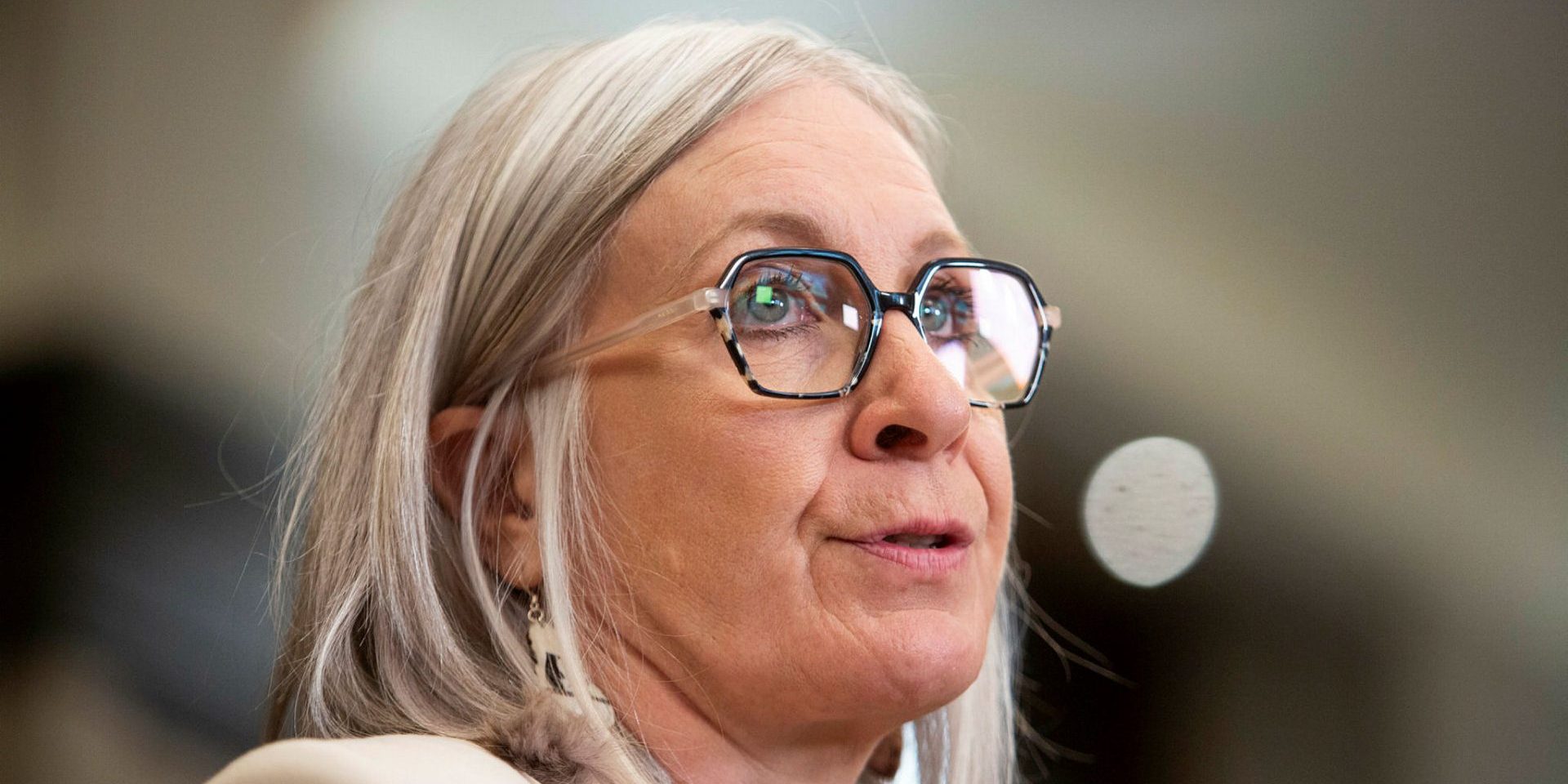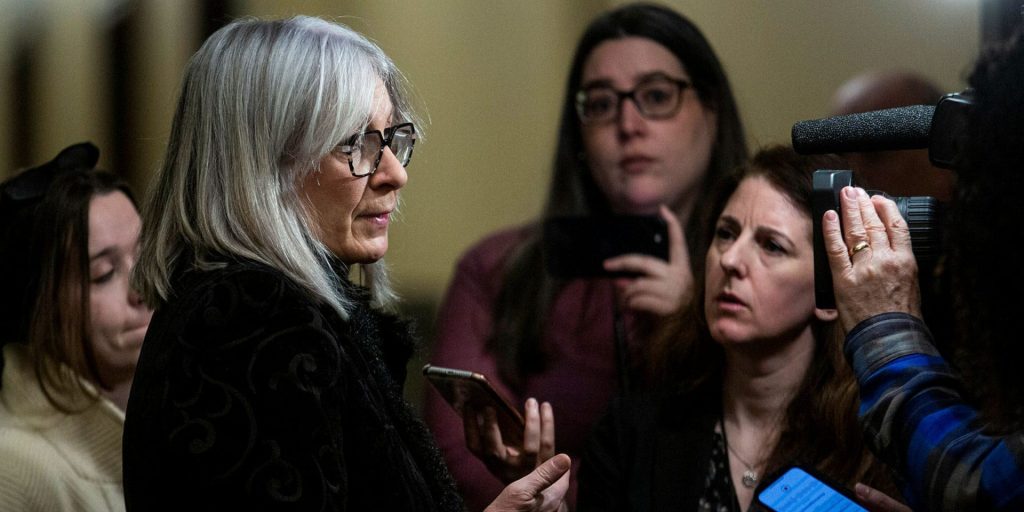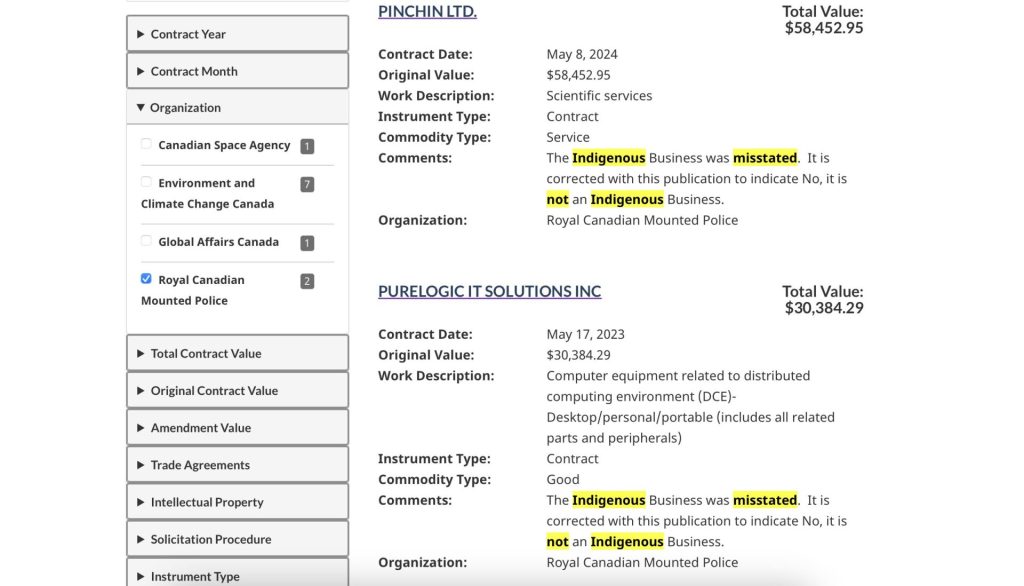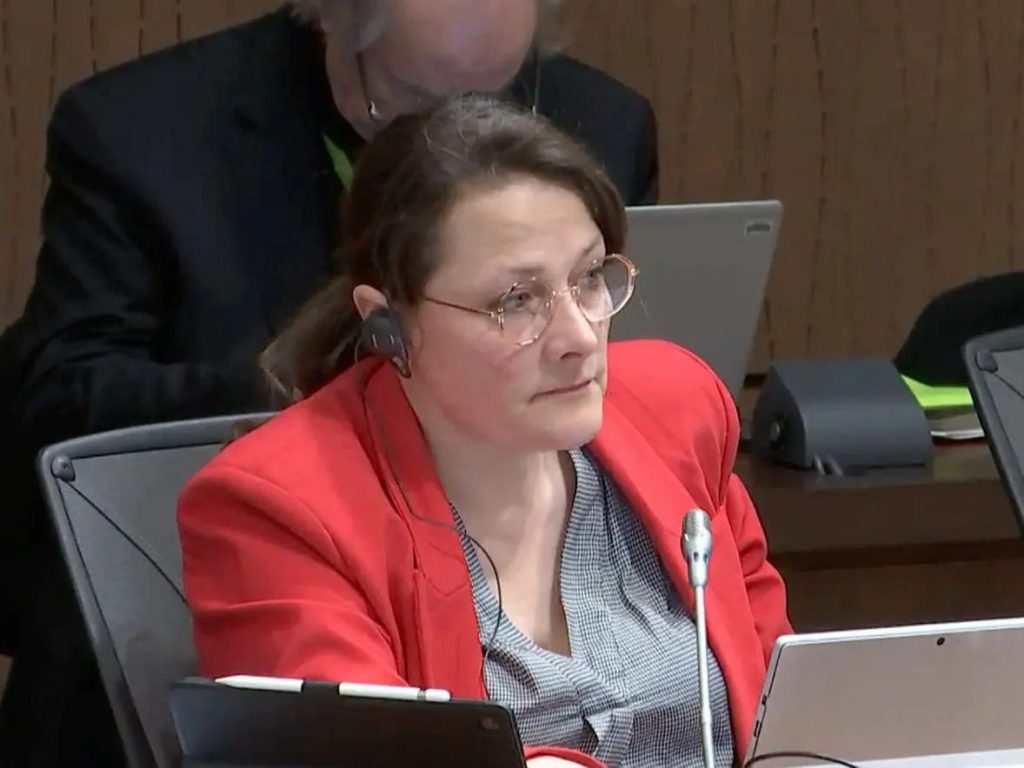Federal departments fix 61 errors related to Indigenous business contracts on public database

Federal departments have corrected 61 errors in contracts awarded to Indigenous-owned businesses between 2018 and 2024, according to a Hill Times analysis, amid growing concerns that companies are fraudulently claiming Indigenous ownership to exploit a multibillion-dollar government strategy fraught with issues.
A review of the government’s public contracting database reveals that 61 “misstatements” have been fixed since 2018, with the majority made since 2022. Those records show which departments have corrected erroneous contracting data related to Indigenous businesses, including one firm that remains on the IBD, despite being non-Indigenous.
The public records’ correction adds to growing criticism of the federal government’s mismanagement of the Indigenous Business Directory (IBD) and its procurement strategies, which require at that least five per cent of contracts go to Indigenous firms. Canada’s Auditor General is planning an audit on the IBD following repeated concerns raised by Indigenous communities and MPs about the integrity and effectiveness of the strategy that is meant to support Indigenous economic growth and reconciliation.
The majority of the corrections only say “the contract was misstated for Indigenous Business excluding PSIB information and has been corrected,” without any clarification as to whether the company in question was determined to be Indigenous at the time of the correction. In six cases, the records state “the Indigenous business was misstated,” noting it was fixed to say, “yes, it is an Indigenous business”—again not clarifying the initial error.
The federal government maintains a proactive disclosure database for contracts over $10,000. The database includes contract indicators showing the contract value, and which procurement strategies were used during the process. Indigenous procurement-specific fields include the “Procurement Strategy for Indigenous Business,” or PSIB, “Indigenous business excluding PSIB,” and “Comprehensive Land Claims Agreement.” Departments select these indicators when entering contract data if the contract aligns with any of these categories.
Only two out of the 61 contracts were awarded under the PSIB, whereas 29 of these contracts were not considered part of PSIB but the vendors were marked as Indigenous businesses. Forty-six of the errors were attributed to Environment and Climate Change Canada (ECCC), eight to Global Affairs Canada, six to the RCMP, and one to the Canadian Space Agency.

Jessica Sultan, director general of the ISC’s economic policy development branch, said in an interview the 60-plus corrections should not lead to “any negative conclusions” being drawn “right off the bat.”
She said every department and agency is responsible for reporting their contracting data on the government portal, so ISC “wouldn’t be able to answer” why those changes were made.
ECCC spokesperson Samantha Bayard said by email that a quality assurance review led to these corrections, and that monthly departmental reviews are done to ensure it meets the government’s five-per-cent target. John Babcock, a spokesperson for Global Affairs Canada, said most of the eight corrections were made to state the status of companies from non-Indigenous to Indigenous.
Carolane Gratton, another ISC spokesperson, did not respond to The Hill Times’ questions about how and why departments select indicators related to Indigenous procurement programs when entering contracting data on the open government website. She said by email that ISC “does not provide direction to departments on putting contracting information” in the database.
RCMP revise status of two firms it misidentified as Indigenous
However, the database marks two contracts awarded by the RCMP as incorrectly classified as Indigenous related to two different firms: Pinchin Ltd., and Purelogic IT Solutions Inc. The RCMP’s clarification for both companies read that the Indigenous business was “misstated,” and has been “corrected” to indicate that “it is not an Indigenous business.”
Pinchin’s website describes the firm as an “environmental, engineering, building science, and health and safety consulting firm.” The company has 157 contracts with the federal government as of Dec. 17, including the six that departments marked as “Indigenous business excluding PSIB.”
According to its website, Purelogic is an Ottawa-based, women-owned IT-solutions firm, and it partners with PureSpirIT Solutions Inc., an Indigenous-owned IT business. Purelogic has three “voluntary set-aside” contracts under PSIB, and 11 contracts marked under “Indigenous business excluding PSIB,” according to government records. The company did not respond to The Hill Times requests for comments by deadline.
RCMP spokesperson Robin Percival said in a statement that the corrections related to Pinchin Ltd., and Purelogic were made in September 2024 due to clarification received from Indigenous Services Canada.

Percival said the correction relating to Pinchin was issued to clarify that “only contracts awarded to ‘CIPS/Pinchin’ as partners in joint venture under the operating name of Pinchin Ltd. are to be considered as an eligible Indigenous business.”
“As it is registered, Pinchin Ltd. is the non-Indigenous entity in the joint venture. The RCMP verified the entities of the awarded contracts, and corrected its data entries accordingly,” reads the statement. Pinchin’s contract with the RCMP, which is not related to any Indigenous programs, is still active, with a final delivery date of March 31, 2025, according to Percival.
Pinchin appears to have partnered with Cambium Indigenous Professional Services (CIPS), an Indigenous-owned and operated group providing consulting and technical services focused on Indigenous engagement, as described on their website. Pinchin states on its website that it has an “Indigenous partnership” strategy, but the firm does not claim to belong to any Indigenous communities.
The two companies in joint venture appear to have been awarded only two contracts, both in the fall of 2020 for National Defence professional services: one valued at $53,629 and the other at $15,820.
Michael Jacobs, CIPS’ chief executive officer, said in a Nov. 27 interview that the partnership was “legitimate,” took place years ago, and “probably lasted only eight to 10 months, and then ended.” Jacobs said their joint venture still appearing on the IBD could be “an archive thing that is still there.”
Jacobs, who identified himself as First Nations, said his company—which focuses on areas such as community planning and environmental consulting—employs 17 staff, all of whom are status First Nations.
According to Percival, the misstatements stemmed from data-entry errors by the RCMP, which were fixed during the RCMP’s routine data review for the Departmental Indigenous Results Report. Percival also said the vendors whose statuses were corrected to non-Indigenous had not claimed to be Indigenous. She clarified that the contracts incorrectly classified as Indigenous procurements were not solicited or awarded through programs like Indigenous procurement set-asides. Percival also mentioned that there have been three other cases where businesses initially labeled as non-Indigenous were later confirmed and corrected as Indigenous. The RCMP does not track how many contracts—if any—have been awarded to non-Indigenous businesses in relation to the government’s Indigenous procurement programs, according to Percival.
Despite this, according to government records, Pinchin has six contracts marked by the federal departments as “Indigenous Business excluding PSIB set-aside,” which could indicate these contracts were part of the government’s procurement strategy to promote Indigenous participation in federal contracts, although it was not subject to a mandatory or voluntary set-aside under PSIB.
The other correction, related to Purelogic, was an RCMP identification error “due to confusion with a similar company name, PureSpirIT Solutions Inc.,” said Percival. She said the RCMP “has corrected the information to ensure accuracy moving forward.”
Purelogic is not listed as a sole firm on the government’s Indigenous Business Directory, but the company appears as a partner to PureSpirIT.
‘Quite confusing‘: Indigenous Services Canada
Both ISC spokespersons Gratton and Sultan highlighted there are two companies contracting with the government under the same name: Pinchin Ltd. Gratton stated that the business with the legal name “Pinchin Ltd.” is not registered on the IBD. However, a quick search of the IBD shows Pinchin Ltd. in the results. The records show the company is registered under the legal name CIPS/Pinchin (Joint Venture) and operates under the name Pinchin Ltd.
Sultan, who acknowledged that having two companies under the same name is “quite confusing,” could not clarify whether or not the firm listed on the IBD with the operating name of Pinchin Ltd. was in fact Indigenous. She said “the fact that this company is on the IBD means that they did undergo a verification process.”
Gratton, meanwhile, told The Hill Times that ISC “will not share specific information about businesses, such as how a business meets Indigenous ownership and control criteria, outside the formal Access to Information process.”
According to the IBD, there is only one Pinchin Ltd. which operates under this name but its legal name is listed as “CIPS/Pinchin (Joint Venture).” The Hill Times inquired about this company’s IBD listing, which, according to the company itself, is not Indigenous-owned. Despite this, according to government data, the company secured contracts outside of a joint venture that are marked by the government as related to Indigenous procurement strategies. Both Pinchin Ltd. listed on the government’s open database and the Pinchin Ltd, on the IBD have a L5N postal code.
Mark Stroombergen, an executive vice-president for Pinchin Ltd., told The Hill Times on Nov. 29: “We are not an Indigenous entity.”
Stroombergen said the business is listed on the IBD because it was part of a joint venture with the Indigenous company CIPS between 2020 and 2022. He said Pinchin has not taken part in any Indigenous-specific procurements outside of a joint venture, though it has been in multiple joint ventures with Indigenous firms over the years. A joint venture is a partnership that allows Indigenous and non-Indigenous businesses to bid on procurements that have been set-aside under the PSIB.
As of Dec. 17, the IBD lists 2,939 verified firms eligible for federal procurement in sectors ranging from construction and technology to gourmet food. It has faced increased scrutiny in recent months amid reports noting poor management of the list and policy has allowed non-Indigenous businesses to profit from federal programs. To be listed on the IBD—which is overseen by Indigenous Services Canada (ISC)—a business must be at least 51 per cent owned and controlled by Indigenous Peoples. In joint ventures, the Indigenous partner must perform at least 33 per cent of the work, according to government’s procurement rules.
Pinchin’s most recent contract related to Indigenous procurement programs—awarded by Parks Canada in February 2024 for engineering consulting services—is valued at $76,807. The department marked this contract as “Indigenous Business excluding PSIB,” but according to Stroombergen, this was “a public tender that did not identify that it was only Indigenous businesses that could submit a proposal.”
“We have not misidentified ourselves as Indigenous to procure contracts,” Stroombergen said.
Stroombergen said The Hill Times was the first to contact the company questioning its standing on the IBD. “Now that this has come to light, we can suggest to the IBD that we not be on there as an individual company because that’s not our intent,” he said.
According to government records, Pinchin also has two contracts from 2023 and 2024 associated with “comprehensive land agreements.” Asked whether a business or individual must be Indigenous to secure and work on a contract related to those agreements, ISC said “Modern Treaty rights holders” control the lists for eligible businesses.
While these lists can limit bidding to businesses tied to that modern treaty, any company—Indigenous or not—would be eligible if it appears on that list.
Stroombergen also said that Pinchin—which, according to its website, has an Indigenous partnership strategy—is “in the early stages of becoming a participating member” of the Canadian Council for Indigenous Business, a group that certifies Indigenous businesses and maintains a list of non-Indigenous accredited partners.
When asked whether it is common practice for a non-Indigenous firms to be listed on the IBD simply because they once participated in a federal contract as part of a joint venture with an Indigenous company, Gratton responded: “No.”
“Businesses are only listed on the IBD if they apply and provide [ISC] with proof of eligibility—at least 51 per cent Indigenous ownership and control,” she said.
No consequences: Conservative MP Genuis
Conservative MP Kelly McCauley (Edmonton West, Alta.), chair of the House Government Operations and Estimates Committee (OGGO) studying Indigenous procurement since early fall, said he could not comment on specific cases regarding these companies. Speaking briefly to The Hill Times, he said “I can tell you that fraud is rampant in the government.”

Conservative MP Garnett Genuis (Sherwood Park–Fort Saskatchewan, Alta.) told The Hill Times that “journalists are having a fairly easy time finding rampant instances of abuse” when asked to comment on the recent corrections to contracting records involving Indigenous firms.
“Meanwhile, this Liberal government, through their Indigenous Services department, has not been able to identify a single case of Indigenous identity fraud where they’ve actually applied consequences to it,” said Genuis, who also sits on the committee.
Genuis said there needs to be consequences for people who abuse the system. “There is just a lack of will, lack of concern within this Liberal government.”
“There are some instances where there are manipulative structures that are created that are technically allowed but that don’t align with the stated intention of the policy,” as well as outright identity fraud, he added.

Bloc Québécois MP Julie Vignola (Beauport–Limoilou, Que.), another OGGO member, said the discrepancies in and obscurity of procurement data demonstrates the government is not the most reliable authority to verify Indigenous businesses.
“We should rely on communities to say this is an Indigenous business. It is owned by Indigenous people, it is hiring Indigenous people,” she said. “When we see [the discrepancies], it’s just another proof that they’re not able to determine with clarity who is and who is not. So we have to find a solution quickly.”
Responding to The Hill Times’ questions about criticism of the IBD, Sultan said ISC is working on a procurement strategy that will involve transferring the IBD’s verification to Indigenous partners.
“We are very aware of and alive to the importance of Indigenous peoples verifying Indigenous businesses, and we are working diligently towards that future reality,” said Sultan.
What are the issues with Indigenous procurement strategy?
A Global News investigation in the summer revealed concerns about “front” companies exploiting the program since the late 1990s. Former Liberal Minister Randy Boissonnault resigned from cabinet on Nov. 20 following reports that Global Health Imports, a firm he previously co-owned, described itself as ‘wholly Indigenous-owned’ in bids for federal contracts. Boissonnault, who had previously identified himself as a “non-status adopted Cree,” said he had no involvement in the GHI bids, and he did not authorize his business partner to make “any claims about his heritage.” Boissonnault also apologized for the ambiguous presentation of his heritage.
Indigenous Services Minister Patty Hajdu (Thunder Bay–Superior North, Ont.) has called for an external audit of Indigenous procurement practices. She told a different House committee on Dec. 9 that her department is working on the details of such an audit, and will present her with a plan.
Garry Hartle, an external auditor formerly contracted by the federal government to review contracts, revealed in an interview with The Globe and Mail that Ottawa repeatedly ignored warnings that the program was allegedly being abused by non-Indigenous companies.
ISC previously told The Hill Times it had removed 118 businesses from the IBD, Hajdu told OGGO in November that 1,100 businesses were removed in 2022 “as part of a cleanup of businesses that were registered before 2019.”
The Hill Times






 LICENSING
LICENSING PODCAST
PODCAST ALERTS
ALERTS













